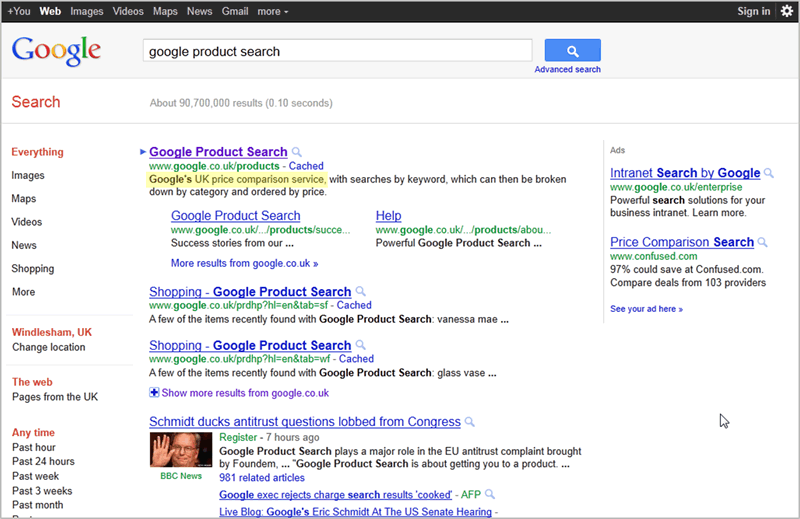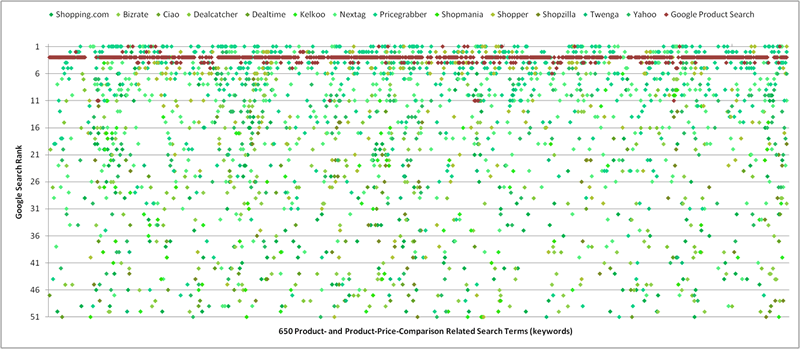Fact-Check Follow-Up
Some of Senator Lee’s questioning in yesterday’s hearing centred around a study conducted by Foundem in April this year. This study of Google’s US search rankings for hundreds of product- and product-price-comparison-related search terms was a follow-up to Foundem’s earlier study of Google’s UK search results (included in Foundem’s submission to the FCC and in Foundem’s EU Antitrust Complaint filed last year). The graphical output of this study demonstrates the breathtaking extent to which Google’s Universal Search mechanism consistently places Google’s own price comparison service at or near the top of nearly all product- and product-price-comparison related searches.
Foundem’s contention – which is based on Google’s own descriptions of its Universal Search mechanism – is that Google uses different algorithms and relevance signals to rank its own services than it does to rank everyone else’s. Because Google applies a different standard to its own services than to everyone else’s, Google can systematically favour its own services to whatever extent it chooses.
Many of Mr Schmidt’s answers to Senator Lee’s probing questions on this subject seemed to hinge on the surprising assertion that Mr Schmidt does not consider Google Product Search to be a price comparison service:
“There’s a conflation of two different things going on in this study…there’s a difference between sites that do product comparison and sites that offer products themselves. Google Product Search is about getting you to a product, and so we tend to look for the product as opposed to the product comparison in this particular case. Which is why the product is more highly ranked than the result of a product comparison site. If you did the same study with all of the other product sites you would find a very different result.
…Things like the companies that are mentioned there are price comparison shopping; they are different animals if you will. They are important, but they do different things. Google Product Search is about searching for specific products. In that sense Product Search does something similar to what PriceGrabber, Nextag and Shopper does, which is why the confusion exists. … It’s an apples to oranges comparison.”
Eric Schmidt, September 21 2011
In our earlier blog post we pointed out that this assertion raises an obvious question: namely, if Google Product Search isn’t a price comparison service, why does Google consistently insert this service at or near the top of the vast majority of Google’s price-comparison-related search results?
But more importantly, Google Product Search is a price comparison service. The following screenshot (taken this morning) shows that Google itself describes Google Product Search as a price comparison service (as does Wikipedia and ComScore):

Mr Schmidt also downplayed the anticompetitive impact of Google’s preferential treatment for Google Product Search (and other services) by suggesting that the inserted links were merely links to vendor sites, not to Google’s own service. But this is not the case.
The following screenshot, for example, shows a Universal Search result for Google Product Search similar to the one featured in the screenshot from yesterday’s hearing. In this example, and in the one from yesterday’s hearing, all four of the featured links are links to Google’s own Product Search service, not to vendors:

